 The natural products industry is fortunate to have among its fold numerous movers and shakers who have helped shape our trade into what it is today and are molding it into what it will be tomorrow. They all care deeply about giving Americans the means to live the healthiest lives they can—and they have the foresight and intelligence to make it happen.
The natural products industry is fortunate to have among its fold numerous movers and shakers who have helped shape our trade into what it is today and are molding it into what it will be tomorrow. They all care deeply about giving Americans the means to live the healthiest lives they can—and they have the foresight and intelligence to make it happen.
One can name scores of men and women who have put their thumbprints on the industry with their innovative ideas and leadership. WholeFoods sat down with 10 of these people, who we believe are among the most influential folks in the natural products industry today. We thought it would be valuable to share their thoughts on some of the most important issues facing us today. Among them is the brain behind one of the most successful natural products stores in the country, one of the most instrumental people in the development and passage of the Dietary Supplement Health and Education Act of 1994, and two of the most influential regulatory voices in the country today.
We spoke with the founder of an association that disseminates some of the most-trustworthy information on herbs, the heads of two of the biggest manufacturers in the industry today, the leader of the largest natural products distributor and two top-notch attorneys who have won some of the most important cases the industry has confronted.
Together, they’ve bucked trends, thought outside the box and dedicated their lives to helping others live healthy lifestyles. WholeFoods will share the comments of five of these industry giants in this issue, and print the remainder next month. All interviews were conducted in November and December 2009.
Scott Rudolph
Chairman and CEO of NBTY, Inc.
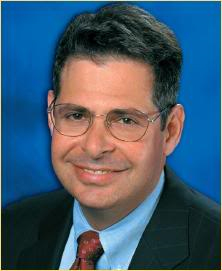 WholeFoods: In a year when so many businesses were floundering, NBTY had huge net sales in fiscal year 2009 of $2.6 billion. NBTY has also seen sales rise at levels even higher than the overall industry growth statistics. What is behind this success?
WholeFoods: In a year when so many businesses were floundering, NBTY had huge net sales in fiscal year 2009 of $2.6 billion. NBTY has also seen sales rise at levels even higher than the overall industry growth statistics. What is behind this success?
Rudolph: As a whole, the supplement industry has been growing faster than other consumer packaged goods industries. In this difficult economic climate, people are looking to take charge of their own health. Rising medical costs and the loss of some healthcare insurance benefits due to rising unemployment or economically driven insurance cutbacks has moved many to alternative healthcare options including nutritional supplementation.
Many people today can’t afford to get sick. Sales of popular supplements like vitamin C and vitamin D for immune support have seen dramatic increases.
A continuing commitment to our customers to deliver superior quality products to the marketplace efficiently and on time has given the company an edge over the competition. Long-term investments throughout NBTY in new manufacturing and distribution technologies make this commitment a reality for our customers, big and small.
WholeFoods: NBTY recently expanded its European presence with Julian Graves, a chain of 350 food and confectionary stores in the United Kingdom. And in the United States, NBTY acquired Leiner Health Products, which underscored the company’s leading position as a supplier in the world retail market for quality nutritional supplements. How do these acquisitions fit into your global strategic growth plan?
Rudolph: [With respect to Julian Graves,] the additional stores open new markets for the company as well as giving us insights into what these new customers are looking for by way of new products. By talking to these new customers, NBTY can better gauge and in many ways predict consumer demand. These essential data can then be shared with all of our retail customers worldwide thus helping them to better meet the demands of their shoppers.
As a well-respected manufacturer and marketer for over 25 years, Leiner proved to be an important addition to the company, greatly strengthening our manufacturing infrastructure and helping us to maintain our price-competitive position in the market.
To keep up with the increasing global demand for our products, NBTY looks far into the future. Long-term strategic plans and capital investments make sure that we have the manufacturing capacities to meet these growing demands and keep our customers in-stock even when seasonal spikes for certain products occur unexpectedly.
WholeFoods: What draws you to acquire a new business?
Rudolph: The industry has been consolidating greatly over the last few years. Companies approach us all the time. We are, of course, open to making acquisitions, but only if they will help us and our customers to meet their objectives whether it’s better pricing, better quality, faster delivery or new product opportunities.
(NBTY told WholeFoods it does not have any acquisitions underway currently, but it is open to opportunities that closely match its long-term growth plans. The company considers its position in the marketplace, level of quality controls, brand portfolio and manufacturing and distribution infrastructure before considering any deal.)
WholeFoods: What new developments in dietary supplement research have you most excited?
Rudolph: Currently, there is much exciting research that will bring health benefits to consumers, but recently the most exciting developments have been with vitamin D and fish oils. Both have been available as supplements for some time, but not many would have thought that the research in the past year would have verified their immense and widespread importance to health.
Vitamin D was formerly mostly associated only with bone health, but now research links vitamin D to heart health, immune health and cancer prevention, and possibly to having heath benefits for diabetics, multiple sclerosis patients and more.
Fish oil studies continue to confirm its dramatic health benefits to the entire cardiovascular system, as well as newer evidence suggesting positive roles in visual and mental health.
Vitamin K2 is another exciting story as research shows how it helps keep calcium in the right places—the bones—and out of the wrong places—the arteries.
Also, the Solgar brand, in particular, has always dedicated itself to conducting scientific research and developing its formulas. It is this key attribute that made Solgar especially attractive to us prior to acquiring the brand in 2005. In addition, we both share the same core philosophy of responsible nutrition. Solgar’s commitment to research has enabled the company to lead the industry in introducing innovative new products. Its team of experts continually reviews new ingredients, the latest scientific journals and studies, and participates in studies worldwide to develop solutions for today’s nutritional challenges. I am proud to say we donate funding, product and internal resources to support nutritional endeavors worldwide in order to best support optimal health and wellness to all.
Margaret A. Hamburg, M.D.
Commissioner of Food and Drugs, U.S. Food and Drug
Administration
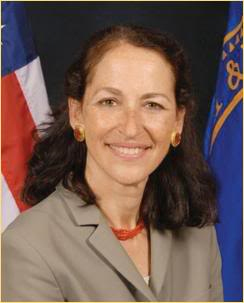 WholeFoods: In an October 2009 letter to industry regarding front of package (FOP) labeling, the U.S. Food and Drug Administration (FDA) said it is “developing a proposed regulation that would define the nutritional criteria that would have to be met by manufacturers making broad FOP or shelf label claims concerning the nutritional quality of a food, whether the claim is made in text or in symbols.” What will be the challenges of developing such regulations?
WholeFoods: In an October 2009 letter to industry regarding front of package (FOP) labeling, the U.S. Food and Drug Administration (FDA) said it is “developing a proposed regulation that would define the nutritional criteria that would have to be met by manufacturers making broad FOP or shelf label claims concerning the nutritional quality of a food, whether the claim is made in text or in symbols.” What will be the challenges of developing such regulations?
Hamburg: The first step in our initiative is to find out what types of front-of-package (FOP) labeling works for consumers. On December 1, we announced our study designs and invited public comment, and we plan to go into the field shortly after the public comment period closes on December 31.*
There are some challenges in developing appropriate regulation. In some cases, FOP labeling claims are nutrient content claims, meaning that they describe the nutrient profile of the food. FDA currently has regulations in place that include nutrient criteria for the use of these types of claims (e.g., claims that imply that a serving of the food is a good source of a specific nutrient or that a serving of the food is healthy, an implied nutrient content claim). For example, for the implied nutrient content claim of “healthy,” there are set criteria for total fat, saturated fat, sodium and cholesterol.
In other cases, the claims may be considered dietary guidance statements, which focus on general dietary patterns, practices and recommendations that promote health. These claims must be truthful and not misleading. In developing a regulation, FDA will consider these types of claims and develop criteria that will consider the recommendations in the Dietary Guidelines for Americans, which include recommendations on food groups to consume as well as certain nutrients. In addition, FDA will review recommendations in the Dietary Reference Intake reports from the Institute of Medicine to develop science-based recommendations for FOP labeling claims. FDA can use its experience with setting criteria for nutrient content claims and health claims to guide its thinking on setting criteria for nutrients for FOP labeling claims.
WholeFoods: Congress recently passed two pieces of legislation that directly affected the dietary supplements industry: good manufacturing practices (GMP) and the reporting of serious adverse events for dietary supplements. Thus far, have these regulations accomplished what the agency hoped they would? Why or why not?
Hamburg: At this point, it is very early in the process. The statute requiring serious adverse event reporting and the dietary supplement GMP regulations are both so recent that we don’t yet have enough information and experience with them to reach conclusions about their effectiveness or limitations. We are working with industry to answer their questions about how they can best comply with these new requirements.
WholeFoods: Many consumers are concerned about the sale of illegal steroid products sold under the guise of dietary supplements. FDA has issued warning letters to some offending manufacturers and recently asked consumers to “stop using bodybuilding products represented as containing steroids or steroid-like substances.” What more can be done to fix this problem from a regulatory and/or nutrition industry standpoint?
Hamburg: Despite FDA’s efforts, and those of other agencies, to identify and remove illegal steroid products from the legitimate dietary supplement marketplace, we face significant regulatory challenges. FDA continues to closely monitor the safety issues presented by steroid products marketed as dietary supplements by addressing those products that pose the greatest health risk to the most vulnerable populations. This is an important public health issue that can only be addressed by collaborative efforts with DEA [Drug Enforcement Administration], other federal agencies, regulated industry, health care professionals and consumers. As a public health agency, we are committed to doing everything we can to protect the American public, not only through regulation and enforcement, but also through education, outreach and collaboration with entities outside FDA. FDA’s Web site (www.fda.gov) contains extensive information for consumers about drug importation, buying drugs online, counterfeit drugs, enforcement activities and potential public health threats, as well as resources to report problems with FDA-regulated products or Web sites that could be selling fraudulent, adulterated or harmful products.
We have also recently released a video on our Web site that is intended to prevent consumers from using bodybuilding products represented as containing steroids or steroid-like substances. It can be accessed at www.fda.gov/ForConsumers/ConsumerUpdates/ucm190842.htm.
FDA’s enforcement challenges are discovering the violation in a huge universe of dietary supplements, proving the violation and effectively deterring future bad actors. After products enter the market, FDA must undertake intensive investigative and analytical processes to show that they are violative. Each enforcement action involves a collaborative effort by FDA chemists, laboratory staff, lawyers, physicians and investigators that can span many months. We cannot comment at this time on specific proposals for regulatory fixes.
* Interview received on December 22, 2009.
Mark Blumenthal
Founder and Executive Director of the American Botanical Council
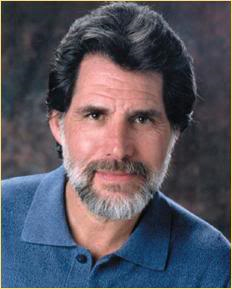 WholeFoods: What attracted you to herbalism and how did you come to found the American Botanical Council (ABC)?
WholeFoods: What attracted you to herbalism and how did you come to found the American Botanical Council (ABC)?
Blumenthal: I became a vegetarian as a protest against the Vietnam War back in 1968. I started going to health food stores looking for ways to get protein from vegetable sources. There were a lot of books, advocacy literature and folkloric literature about herbs, which I found fascinating. I started reading herbal books and literature as a hobby, and then later in 1970s, made it my vocation.
I co-founded Herbal Gram in 1983 with Rob McCaleb, who was at Celestial Seasonings at the time. Herbal Gram was originally a newsletter that we published for the American Herbal Products Association (AHPA) and for the Herb Research Foundation (HRF). Five years after publishing Herbal Gram for AHPA and for HRF, I decided to start the American Botanical Council (ABC) as a vehicle for getting the funding and creating the administrative core to take the Herbal Gram black-and-white newsletter to a four-color Scientific American-type peer-reviewed publication with strong graphics, which Herbal Gram has become.
WholeFoods: What were some of your most important projects that ABC has undertaken?
Blumenthal: Number one is Herbal Gram, which was one of the first publications out there on herbs. Herb Clip does not get as much recognition, but we created this unique database in 1993, and it now has over 4,000 articles that are summarized and/or clinically reviewed. We put out over 30 per month. That’s a significant contribution because it makes a lot of important herbal studies instantly available to readers, researchers and companies….it’s unique; there’s nothing else like it.
One of the crowning achievements that people will remember ABC for is the publication of the German Commission E monographs. The German Commission is the equivalent of the U.S. Food and Drug Administration, and Commission E deals with only herbal products. They evaluated over 380 herbs and herb combinations and all the available literature to determine which herbs would be given a government-approved use, what the dosage should be, what the side effects could be, what their indications are, known drug interactions—that kind of thing.
They put together a series of monographs that were designed as package inserts for herbs sold at pharmacies. Commission E-approved herbs were sold as non-prescription drugs recognized by the government in German pharmacies. So, the Commission E was probably the most rational system ever devised by a Western, industrialized nation (this was back in the 1970s and 1980s) to recognize the benefits of many herbs sold in medicine and the pharmacy at the time.
We translated all the monographs that they published in the German Federal Register, cross-referenced them and put them out in a 715-page book in 1988, which became the second highest ranked medical book of the 1990s. In 2000, we came out with an expanded version of select monographs called Herbal Medicine: Expanded E Monographs.
Another book we put out in 2003, The ABC Clinical Guide to Herbs, was the first book for health professionals that basically connected the dots between the herbs, the research on those herbs, and which products and branded extracts were actually used in those clinical studies… we were among the first to call attention to the fact that a lot of the research on herbs is not generic. Most of the research on herbs is proprietary. A lot of it, especially in the early years and even so today, pertains to a specific commercial product.
WholeFoods: What projects would you like to see ABC tackle in the future?
Blumenthal: We’re working on a project right now that we hope to start this year—if we get the proper funding—where we will review myths, misconceptions, ideas and information in the conventional wisdom to determine whether it’s documentable. We’re going to examine all the different kinds of ideas people have about herbs, whether they think they are safe, effective, toxic, nontoxic and test whether they hold up to professional scrutiny based on the best available evidence…There are a lot of misconceptions and confusion among consumers in the herbal and dietary supplement marketplace and one of the things we want to do is eliminate that and set people straight and, in many cases, make them feel more comfortable about those things that are supportable by the best available evidence.
The plan is to put out a series of peer-reviewed reports on specific, tactical subjects…The idea is publish dozens of these reports each year and make them highly available to consumers, media, health professionals and others.
And, we’re going to move forward in helping to document legitimate, clinically documented benefits and activities of many herbal and plant-based products. There’s no lack of need for information. Consumers want clarity. They want to know. Consumers have already expressed that they want safe, low-cost natural dietary supplements.
WholeFoods: Are there any herbs that haven’t gotten a lot of attention that you feel have been the subject of some really good research and could soon become top sellers?
Blumenthal: If someone asked me this a couple of years ago, I would have said stevia is going to be a big herb in the future. Today, if someone were to ask me what will be the next hot sweetener, I’d say luo han go, which will soon be marketed as monk fruit. I think that’s got a lot of market potential because there are many years of safety research associated with that plant…also luo han go has been used in Chinese medicine for its pulmonary benefits.
WholeFoods: Herbal supplements often get beat up in the media for being of a poor quality or not effective at all. Can you offer some advice to retailers who are dealing with these stereotypes?
Blumenthal: This ties into the project ABC is working on. When we start this new project, which we’re calling HerbalFactCheck.org, we’re going to help set things straight so that retailers, consumers, researchers and health professionals can get clear on so much of the information, misinformation and, I dare say, disinformation that we find regularly in the media.
Marc S. Ullman
Partner at Ullman, Shapiro & Ullman, LLP, Food and Drug Law Counsel
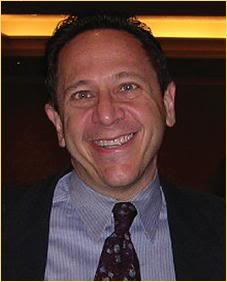 WholeFoods: How did you come to concentrate on food and drug law?
WholeFoods: How did you come to concentrate on food and drug law?
Ullman: There’s a long history in my family. My father practiced food and drug law his entire career, starting in 1964. His firm was general council to the then National Nutritional Foods Association (NNFA). There’s a lot of history there, so it was a natural evolution.
WholeFoods: Over the past decade, what have been your most memorable cases in the natural products industry?
Ullman: First is the Federal Trade Commission’s challenge against Metagenix’s Bone Builder calcium, where the Commission tried to push a case that would have challenged some of the most basic calcium claims and potentially hamstrung anyone from making any sort of claims. The theory that the Commission was pushing, and the heart of the case as it turned out, was the argument that the name “Bone Builder” for a calcium product was inappropriate because, in essence, calcium does not build bone for all people in all phases of their lives.
Eventually, after a lengthy and extremely costly administrative hearing and then an appeal directly to the Commission, Metagenics was able to prevail and that challenge was dropped. It was one of the first cases I was involved in.
WholeFoods: Have there since been any similar accusations like that?
Ullman: To my knowledge, there’s been no effort to push that broad a limitation on the ability to make claims for supplements.
WholeFoods: What other cases have been especially memorable for you?
Ullman: Something that I’m in the midst of right now is a Citizen’s Petition that my firm filed on behalf of OVOS Natural Health for its homotaurine. That matter puts into play a critical provision of the Dietary Supplement Health and Education Act (DSHEA) that the U.S. Food and Drug Administration (FDA) has refused to address and continues to drag its feet on as well as on issues relating to the interpretation of amendments to the Food, Drug, and Cosmetic Act from the Food and Drug Administration Amendments Act (FDAAA) of 2007 that relate to a prohibition of the addition of a drug ingredient to food. It has an incredibly broad definition of “drug,” which is basically anything that has had anything published on it. So, it’s much, much broader than the restrictions on what can be a dietary ingredient.
The new law did not amend DSHEA. It left in tact the structure for defining what can be a new dietary ingredient that was established by DSHEA. Yet, FDA has refused to acknowledge that the standards established by DSHEA do still apply. And, in fact, that was an issue that FDA requested comment on some time ago, and the comment period has been closed for over a year. Yet, FDA continues to refuse to address the issue.
WholeFoods: Why is the agency delaying?
Ullman: I believe that the agency is seeking to do whatever it can at this point to restrict the category of dietary supplements.
WholeFoods: What do you hope the outcome of the case will be? What’s the next step?
Ullman: That the FDA does what the law says it should do: acknowledge that the framework established by DSHEA is still valid and that it establishes a process by which a company that has a well-studied ingredient—that research was undertaken on pursuant to an investigational new drug filing—has a pathway to market as a dietary supplement.
[The case] has the potential to show that DSHEA is what it was intended to be. It was designed to encourage serious research and allow well-researched, well-intended, beneficial ingredients onto the marketplace. . . There aren’t an infinite number of grains in the hourglass. It’s going to run out and FDA is going to end up getting sued.
WholeFoods: There’s much chatter about how DSHEA is being targeted right now from so many angles. Does it have you concerned? Do you have any feelings about what industry can do to address this issue?
Ullman: Yes. Industry needs to support self-regulatory efforts. Industry needs to be careful about what it markets and how it markets it. Industry needs to get behind its trade associations and give them the resources they need to do their jobs on Capitol Hill.
Everyone is on alert and I see a lot of hand wringing and not a lot of action from broad-based industry.
WholeFoods: In a few months, all dietary supplement manufacturers will need to be compliant with good manufacturing practices (GMPs) for supplements. So far, has the FDA visited many plants for inspection? What are they targeting?
Ullman: FDA hasn’t visited enough plants. They are active and they are out there. It’s going to take some time. Companies that can’t comply with the GMPs don’t belong in the business. I think they are turning their attention not only to the processes that are established at covered facilities, but what steps are being taken to ensure that raw materials are sourced properly from responsible suppliers who operate in compliance with food GMPs, at a minimum.
Loren D. Israelsen
President of the LDI Group, Inc., Executive Director of the United Natural Products Alliance
 WholeFoods: In 2009, you spoke and wrote a lot about the importance of defending the Dietary Supplement Health and Education Act (DSHEA). How are we as an industry doing on this front, and what can we do better?
WholeFoods: In 2009, you spoke and wrote a lot about the importance of defending the Dietary Supplement Health and Education Act (DSHEA). How are we as an industry doing on this front, and what can we do better?
Israelsen: I am both encouraged and concerned. On the encouraging side, there’s clearly an interest on the part of the regulators to enforce DSHEA. That’s new news. Any statute of significance like DSHEA requires both the industry and the regulator to do their parts. It doesn’t matter what kind of legislation you’re interested in—it’s the same equation. Whether you’re regulating aviation or the safety of consumer products, the bulk of the burden will fall on us, the industry.
Things that I have written about and have been critical about are, number one, a lack of understanding or willingness to follow the rules laid out in DSHEA. Some of it was simply lackadaisical. Companies that should have known better just didn’t follow the rules. Some of them were minor, some were significant and some of it we couldn’t anticipate. We’re trying to figure out how to deal with new problems like the Internet …A guy sitting in his living room with his laptop can appear to be a big and important business. So, here’s this unusual situation where an individual or a small group of people can dominate a marketplace by flooding it with ads and making outrageous claims or statements selling products in our industry.
How do you find them? How do you deal with them? The government doesn’t know, and frankly we don’t know. So, how do you help consumers maintain a high level of trust and confidence in both information quality and product quality?
The flip side would be that DSHEA included a good manufacturing practices (GMP) provision that said the U.S. Food and Drug Administration (FDA) could propose GMPs for dietary supplements…We’re now at that last phase where we’re more than halfway through and we’re going to get into some of the really hard parts of DSHEA compliance.
How do we help small companies comply and not go out of business? I’m really concerned about it and I know a lot of small companies are concerned about it. I know FDA is, too. They don’t want, nor intend, to shut down small companies unless there’s a really compelling reason. In the regulations itself, there was a lot of talk about the effect that this would have.
I believe there’s a way to help almost any small company that’s interested in compliance to find a pathway to do that, but that will require the larger companies and FDA to cooperate to help smooth that pathway…We need to help the small companies compete at a level where they’re taken seriously.
A lot of people, myself include, feel [small companies] bring enormous value to who we are as an industry. A lot of the really good, creative, fresh ideas come from them...There’s a real, live energy there that we have to nurture as if it’s a greenhouse and these are tender little plants. We have to make sure the greenhouse is working.
WholeFoods: What is the United Natural Products Alliance doing in this area?
Israelsen: We’d like to see if we can begin some kind of co-op system, or at least begin that process. We’ll be announcing a collaboration with a really interesting group that’s not part of the industry. This group has already come up with a small business GMP-compliance program…we’re going to work with them to see if we can take their program and make it more broadly available in our industry.
I’m pretty excited about this relationship. It’s just what’s needed. It’s fully developed. It’s already working. It was serendipitous that both sides met.
I’d also like to see if we can come up with a collaborative buying system…For someone who buys 100 kilos of ginseng, let’s say, they’ll spend substantially more than what they paid for the product to test it. That puts them at a big disadvantage…Why can’t we find a way for them to buy from a cooperative, meaning here’s 1,000 kilos of a material that’s been tested. The cost of testing was built into the price.
Another thing we can do is to have a series of workshops and courses that train people in a very affordable way about what GMP compliance really means…The goal is to ensure consistent, good quality at the end of the day. And for companies that are interested in doing it, we can do it.
2010 is going to be a year to see what we can do to help small companies. It’s also going to be a year to really do some spring cleaning. This steroid problem needs to be solved, for instance.
WholeFoods: Let’s talk about that. What are your thoughts on what U.S. Anti-Doping Agency (USADA) is doing? USADA recently pulled together a group that plans to urge Congress to create more legislation to better regulate supplements, particularly adulterated products that contain steroids.
Israelsen: I believe there’s a way to help USADA resolve most of its issues without changing DSHEA. We have a lot of common goals. They want steroids out of here; so do we. They want to understand how industry can improve GMP compliance; so do we. They’re concerned about supply chain management; us, too. So, they have a 10-point list that they’re using as a template for discussion. This new initiative they launched is really to get other interested parties together to try and put more pressure on the people that can do something to get steroids out of the consumer marketplace.
I’ve asked USADA to quit talking about this as a dietary supplement problem. It’s not…Let’s get everyone using the right terminology here. These are adulterated, illegal drugs and/or illegal controlled substances. It’s that simple. They’re being sold under the guise of dietary supplements or cosmetics or something else. If we get the terminology correct—even FDA’s commissioner used the correct terminology—it’s that people are adulterating food, supplements and other things. The goal is to get these things out of commerce. That will require a joint effort of the Drug Enforcement Administration, FDA and state attorney generals. We would like to get this thing done in a really significant way and are happy to work with USADA and others on legislation to speed up the DEA scheduling process. We’re happy to work on techniques to more quickly and efficiently look for these spiked agents so that the analytical process can be faster to share the information more broadly. We’ll need a pretty intensive education program as well. So, for companies that are not paying attention, they need to.
USADA is resolute about what they are trying to do…I believe they will work toward a common set of corrections that doesn’t require doing surgery on DSHEA.
WholeFoods: You mentioned the language that FDA Commissioner Margaret Hamburg used to frame this issue. Now that she’s been in her position for several months now, how favorable do you feel she’s been toward our industry? Do you have any ideas of what we might see from FDA in the near future?
Israelsen: So far, so good. I think she gets a good report card, as does the primary deputy commissioner Josh Sharfstein. My feeling is that they are very bright people, who bring a new energy and a new commitment and a real tailwind from Congress and from pretty much everybody—the regulated, the nonprofits and the public. They’re all encouraging the commissioner and the senior staff to really tackle some of these tough problems.
The work list they seem to be assembling for supplements is really ambitious…One guidance that just came out was on distinguishing between beverages and liquid dietary supplements. It’s a very significant issue…I believe stimulants and caffeine are going to be big issues in 2010.
Also, adverse event reporting is a really important issue. How do you identify a serious event? When should it be reported? FDA recently shared some of its internal systems for how they process these reports as they come in...The question came up, are there parts of the body that are more important or significant than others? The answer is yes. The liver is really significant. The industry will need to learn and understand the science of liver toxicology.
The Federal Trade Commission (FTC) is going to become a major player…There’s clearly a new level of interest and focus at FTC about the kinds of cases they are interested in. The kind of substantiation they are interested in, which is going to be much higher than we’ve seen in the past. What many companies thought in the past were acceptable claims to FTC likely will not be. You’ll see a merging of FTC’s definition of the disease claim that looks like FDA’s definition of a disease claim…if you make a disease claim, it isn’t a question of whether it’s truthful and nonmisleading. You’re going to have a lot of substantiation in the first place, if you can make the claim at all. WF
Coming Up Next Month In March, WholeFoods will continue its Q&As of influential people in the natural products industry with:

Jonathan W. Emord, Esq., attorney
practicing constitutional and
administrative law

Michael Funk, president and CEO of UNFI

Jarrow Rogovin, founder, president
and chairman of Jarrow Formulas

Kathleen A. Merrigan, Ph.D.,
deputy secretary of agriculture,
U.S. Department of Agriculture

plus, a spotlight on John Mackey,
CEO of Whole Foods Market
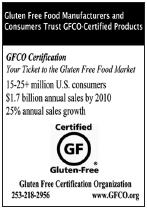 |
 |
Published in WholeFoods Magazine, Feb. 2010










